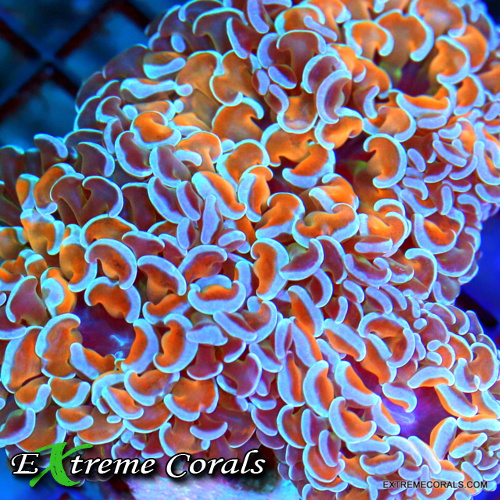Extreme Corals News and Updates
The Future of Reefkeeping: Innovations to Watch in 2025
Explore How Technology and Sustainability Are Shaping the Reefkeeping Hobby
Discover the latest innovations in reefkeeping for 2025, from AI-driven tank monitoring to sustainable coral propagation and cutting-edge lighting systems
by scott Shiles • January 23, 2025
Reef Tank Equipment, Reef Tank Maintenance
A New Era of Reefkeeping
Reefkeeping has come a long way from its humble beginnings. What once required labor-intensive setups and trial-and-error care has transformed into a thriving hobby supported by groundbreaking technology and a deeper understanding of marine ecosystems.
As we look toward 2025, the future of reefkeeping promises even more innovation. From smart tank automation and AI tools to eco-conscious practices and cutting-edge lighting systems, hobbyists now have access to tools that not only simplify reefkeeping but also promote sustainability and deeper engagement with the underwater world. Let’s explore the most exciting developments shaping the future of reefkeeping.
AI-Powered Tank Monitoring and Automation
One of the most transformative advancements in 2025 is the integration of artificial intelligence (AI) into reefkeeping. AI tools are revolutionizing how hobbyists monitor and maintain their tanks, offering unprecedented precision and convenience.
What’s New:
- Real-Time Analytics: AI-powered systems can analyze water parameters, temperature, and nutrient levels in real-time, sending alerts when adjustments are needed.
- Automated Dosing and Feeding: Smart systems can calculate the exact amount of supplements and food your corals and fish need, ensuring optimal health.
- Learning Algorithms: AI adapts to your tank’s specific needs over time, providing tailored recommendations for lighting, flow, and maintenance schedules.
Example Innovation:
- Neptune Systems Apex AI: This system uses machine learning to track trends in tank conditions, predict potential issues, and automate corrective actions.
Sustainable Coral Propagation and Aquaculture
With growing awareness of the need to protect natural coral reefs, sustainability is at the forefront of reefkeeping innovation. 2025 has seen a surge in eco-friendly coral propagation techniques and aquacultured corals that reduce the hobby’s environmental impact.
What’s New:
- Advanced Propagation Techniques: Coral farms are using microfragmentation to accelerate coral growth, making rare species more accessible to hobbyists.
- Aquacultured Corals: Corals grown in controlled environments are hardier and better adapted to aquarium life, reducing reliance on wild harvesting.
- Community Initiatives: Hobbyists are participating in coral frag swaps and conservation programs, spreading awareness and promoting sustainability.
Hybrid and Full-Spectrum Lighting Systems
Lighting remains one of the most critical aspects of coral health, and 2025 has brought exciting advancements in hybrid and full-spectrum lighting systems that mimic natural sunlight more effectively than ever before.
What’s New:
- UV Integration: New lighting systems include precise UV spectrum adjustments to enhance coral coloration and stimulate photosynthesis.
- Hybrid Solutions: Combining LED and T5 technologies offers the best of both worlds, creating even light distribution and vibrant coral growth.
- App-Controlled Customization: Hobbyists can now fine-tune lighting schedules and intensity using smartphone apps, providing dynamic lighting effects that simulate sunrise, sunset, and lunar cycles.
Example Innovation:
- EcoTech Marine Radion G6: A full-spectrum lighting system with enhanced UV and customizable settings for maximum coral health and coloration.
The Rise of Nano Reef Tanks
Nano reef tanks—compact systems typically under 20 gallons—are gaining popularity in 2025 as technology makes maintaining smaller tanks more accessible than ever. These setups are perfect for hobbyists with limited space or those looking to explore the hobby at a lower cost.
What’s New:
- Smarter Equipment: Miniaturized versions of protein skimmers, powerheads, and ATO systems make nano tanks easier to maintain.
- Designer Corals: Aquacultured corals bred specifically for nano tanks are now widely available.
- Pre-Built Kits: All-in-one nano reef kits with integrated lighting, filtration, and smart controllers simplify the setup process.
Example Innovation:
- Waterbox Nano Series: Compact reef tanks designed for beginners and advanced hobbyists alike, featuring sleek designs and built-in technology.
Naturalistic Aquascaping and 3D Printing
The art of aquascaping is reaching new heights in 2025, with hobbyists embracing naturalistic designs and leveraging 3D printing to create custom reef structures.
What’s New:
- Eco-Friendly Aquascapes: Reef-safe, biodegradable materials mimic natural reef formations, promoting coral attachment and growth.
- 3D-Printed Structures: Hobbyists can design and print unique aquascapes tailored to their tank dimensions and coral preferences.
- Immersive Displays: LED backdrops and flowing aquascapes create a natural reef look that enhances visual appeal.
Example Innovation:
- Reef Design Lab: A company offering customizable, 3D-printed reef bases made from eco-friendly materials.
Embracing the Future of Reefkeeping
The future of reefkeeping is bright, fueled by innovation and a commitment to sustainability. With advancements in AI automation, coral propagation, and biometric monitoring, hobbyists in 2025 have more tools than ever to create thriving, eco-friendly reef ecosystems.
Whether you’re a beginner looking to start your first tank or a seasoned aquarist exploring new technologies, the possibilities for enhancing your reefkeeping experience are endless.
Ready to explore the latest tools and innovations for your reef tank? Visit ExtremeCorals.com and discover the future of reefkeeping today!

